
Marcel Breuer y la Bauhaus Dessau Tecnne arquitectura y contextos
fe_typo_user You can find more information at Lattenstuhl ti 1a, Autor: Marcel Breuer, 1924 Siebenbrodt, Michael (2000): Bauhaus Weimar. Entwürfe für die Zukunft, Ostfildern-Ruit.

Marcel Breuer B35 Leather Lounge Chair/Armchair for Germany 1930s 120629
Dos sillas vintage diseño Marcel Breuer, edición años 70.Asiento, respaldo y cinchas laterales realizadas en piel de color negro.Estado: buen estado (piel pe.

Marcel Breuer Grandes diseñadores Esencia
The Cesca chair ( / ˈtʃɛskə /) is a chair design created in 1928 by the Hungarian-American architect and designer Marcel Breuer. It consists of a tubular steel frame and a rattan seat and backing. [1] [2] The design was named as a tribute to Breuer's adopted daughter Francesca (nicknamed Cesca). [3]

Set of 6 B33 dining chairs by Marcel Breuer for Gavina, 1970s 124136
1926-1927 (designed), 1926-1927 (manufactured) This chair was a refinement of the first, somewhat complex tubular-steel chair without arms that Marcel Breuer designed in 1926. That design was used to furnish interiors at the Dessau Bauhaus school and in its masters' houses.

La silla S32 rebautizada como Cesca y diseñada por Marcel Breuer en 1928 es una de las sillas
8 other works identified How we identified these works Licensing Feedback Marcel Breuer. Cesca Side Chair (model B32). 1928. Gebrüder Thonet, Vienna, Austria. Chrome-plated tubular steel, wood, and cane. 32 x 18 x 21 3/8 x 18 1/8" (81.3 x 45.7 x 54.3 x 46 cm). Purchase. 835.1942. Architecture and Design

Ourso Designs Marcel Breuer Cesca Chair 1928
B55 Cantilever chair by Marcel Breuer. A cantilever chair is a chair whose seating and framework are not supported by the typical arrangement of 4 legs, but instead is held erect and aloft by a single leg or legs that are attached to one end of a chair's seat and bent in an L shape, thus also serving as the chair's supporting base.

Chrome & leather B3 Wassily chair in black by Marcel Breuer for Gavina 109647
Marcel Breuer was a Hungarian architect and furniture designer, best known for the iconic design of what is now known as the Breuer Building. Located at the corner of Madison Avenue and 75th Street in New York, it served as the home of the Whitney Museum of American Art from 1966 until the museum's relocation in 2015. Considered somber—even.
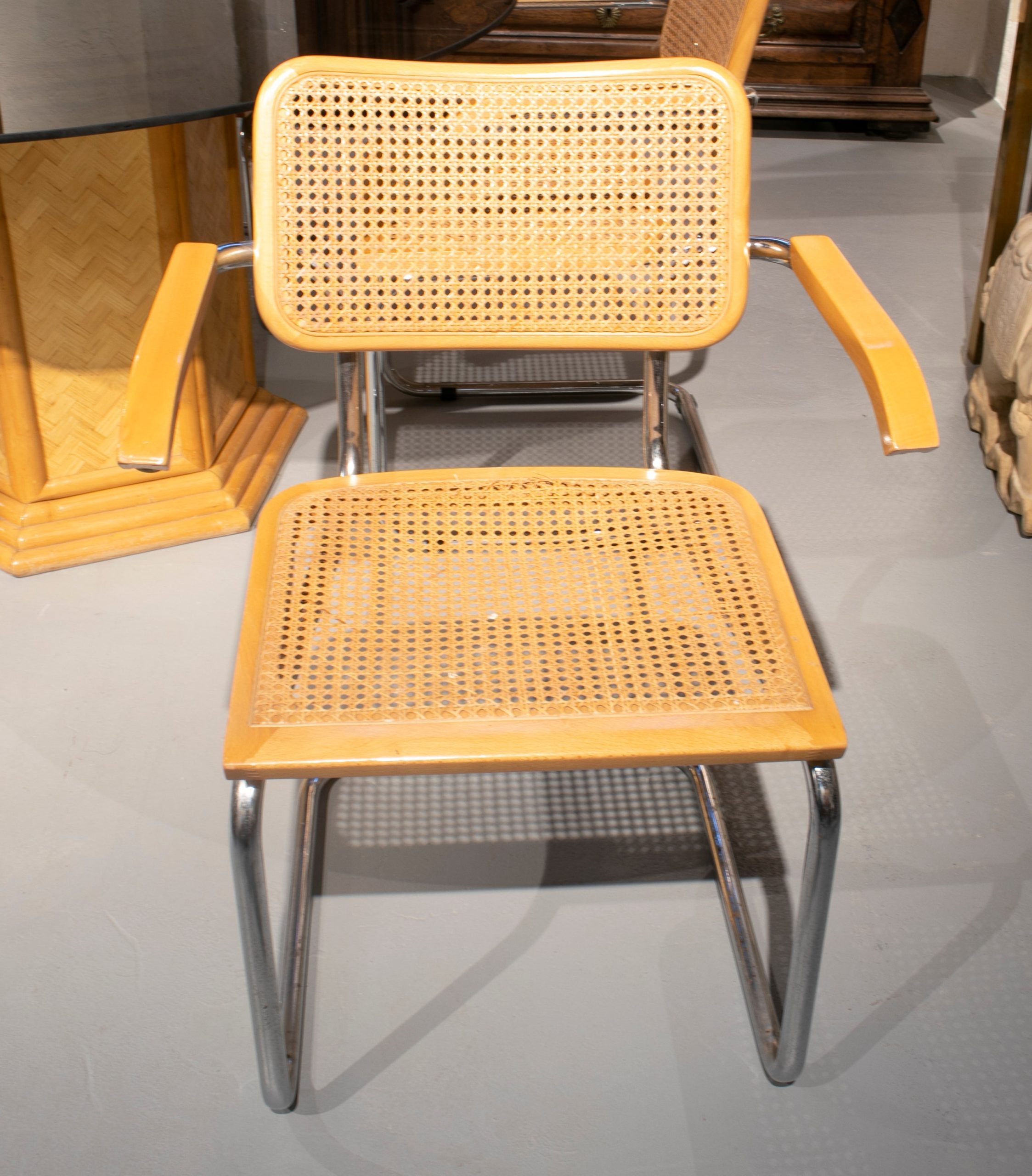
Silla Cesca de Mediados de Siglo con Brazos de Marcel Breuer, Italia, 1970 La Fábrica de Hielo
La Silla S35 de Marcel Breuer nace en el seno del taller de mobiliario de la Bauhaus mientras éste ejerce como profesor en él. La Silla S35 sigue el esquema compositivo de otras sillas del genial diseñador alemán como la silla Cesca o la silla que realizara para su amigo el pintor Wassily Kandisky.Una ligera estructura de acero tubular soldada soporta sendos elementos realizados en paja de.
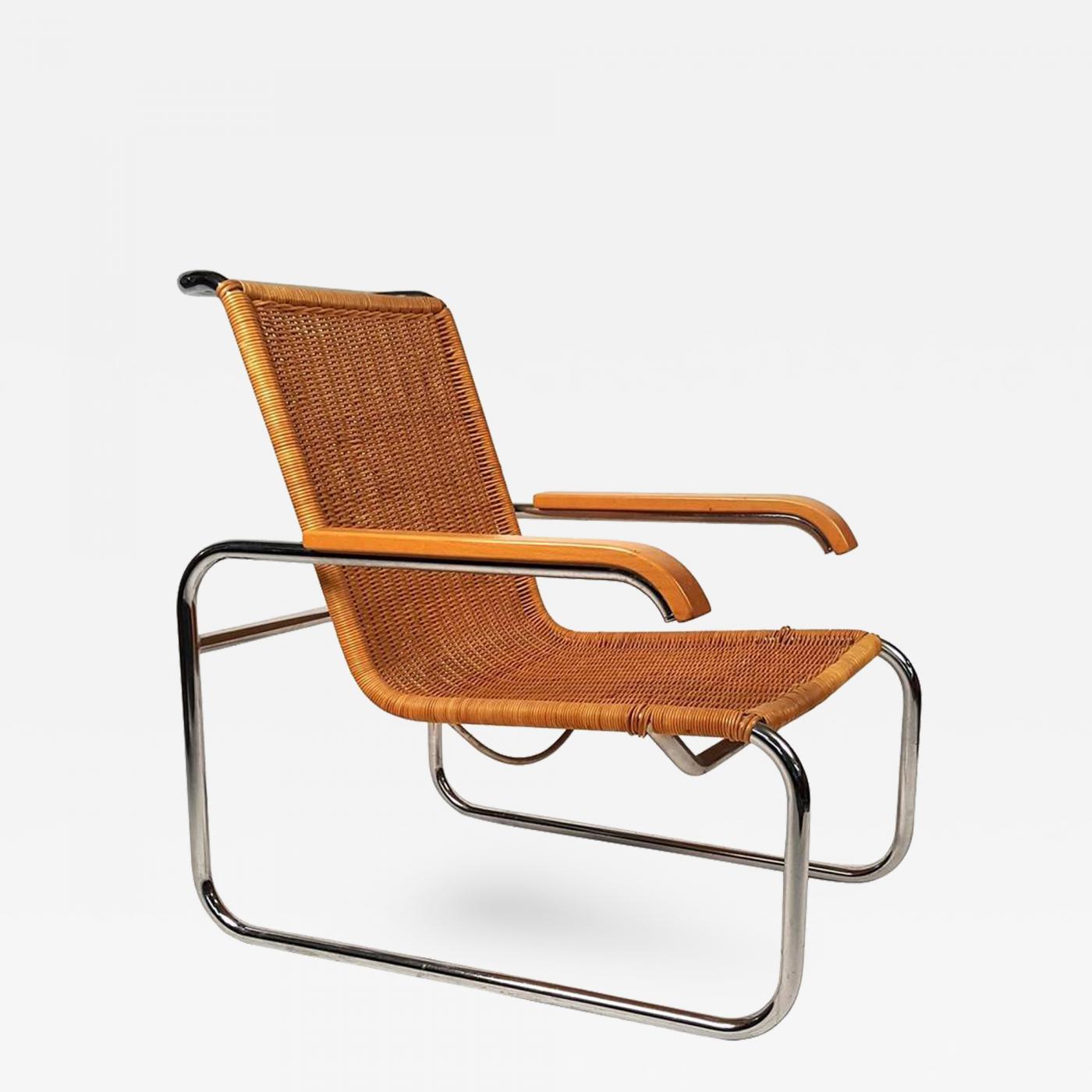
Marcel Breuer Marcel Breuer B35 Lounge Chair
Silla africana Marcel Breuer, Colaboración con Gunta Stölzl en la Bauhaus. Fabricada en tela y madera pintadas, fue una obra de los primeros años de la Bauhaus, y se le dió por perdida durante 80 años.
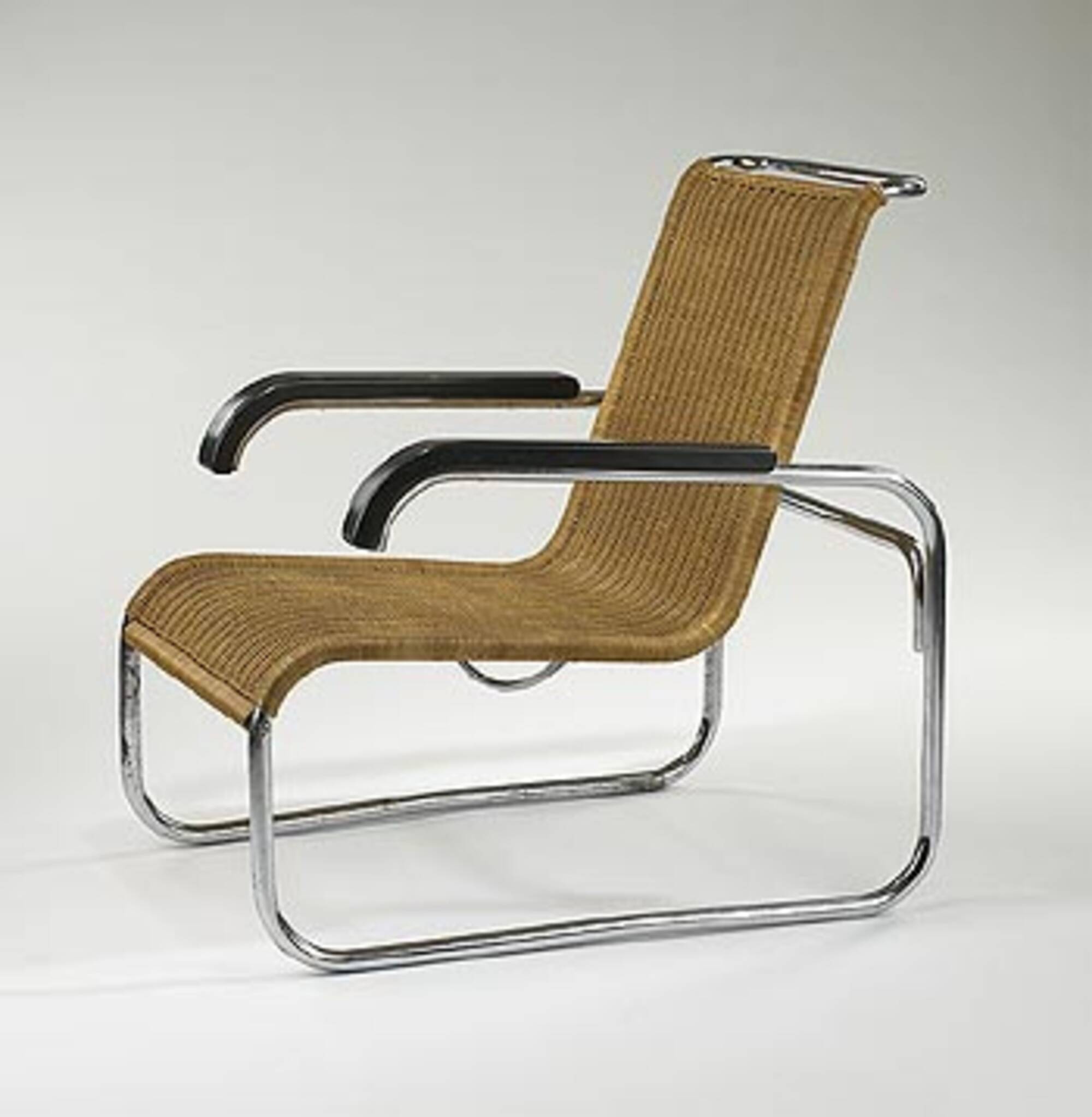
134 MARCEL BREUER, B35 lounge chair
Marcel Breuer was born on May 21, 1902, in Pécs, Hungary, a small town near the Danube River. After graduating from high school at the Magyar Királyi Föreáliskola in Pecs, Breuer enrolled at the Academy of Fine Arts in Vienna to study painting, where he had been offered a scholarship. He almost immediately disliked the program, however, and.
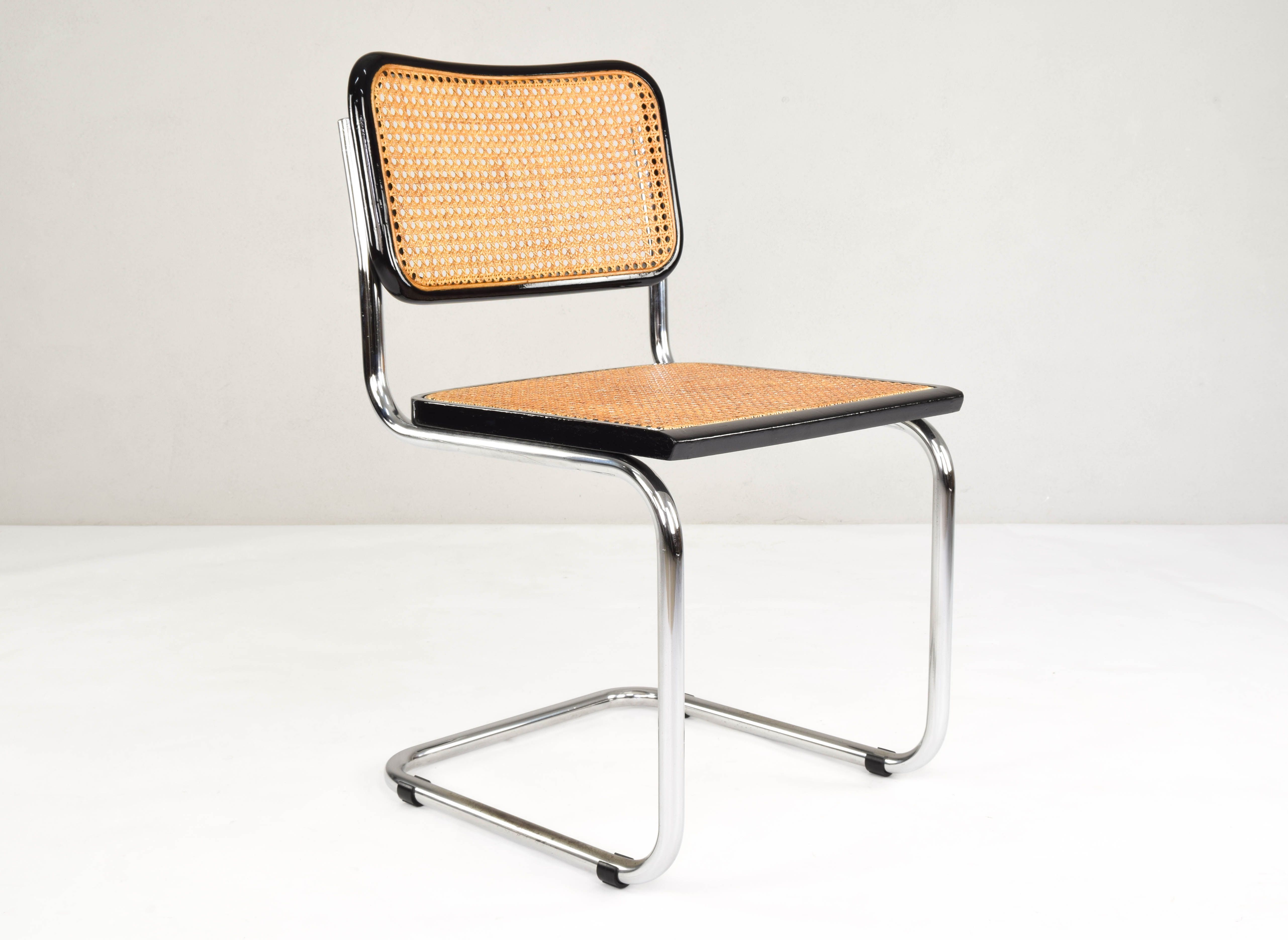
Set of 6 MidCentury Modern Marcel Breuer B32 Cesca Chairs, Italy, 1970s Design Market
Model 'B33' cantilever chair, designed by Marcel Breuer, 1927-28. Manufactured by Thonet c.1930. Physical description. A chair with a single leg made from tubular steel that is attached to one end of the chair's seat and bent in an L shape The seat is constructed from a red fabric that is stretched in two parts across the seat and back rest.

Marcel Breuer Club Chair Model B3 Sgustok Design Part 2
Marcel Breuer 1928. Designed in 1928, Marcel Breuer's Cesca chair married traditional craftsmanship with industrial methods and materials to help make tubular steel furniture an international sensation and a modern institution. The cantilevered form exploits the possibilities unique to the material and gives the chair added flexibility and.
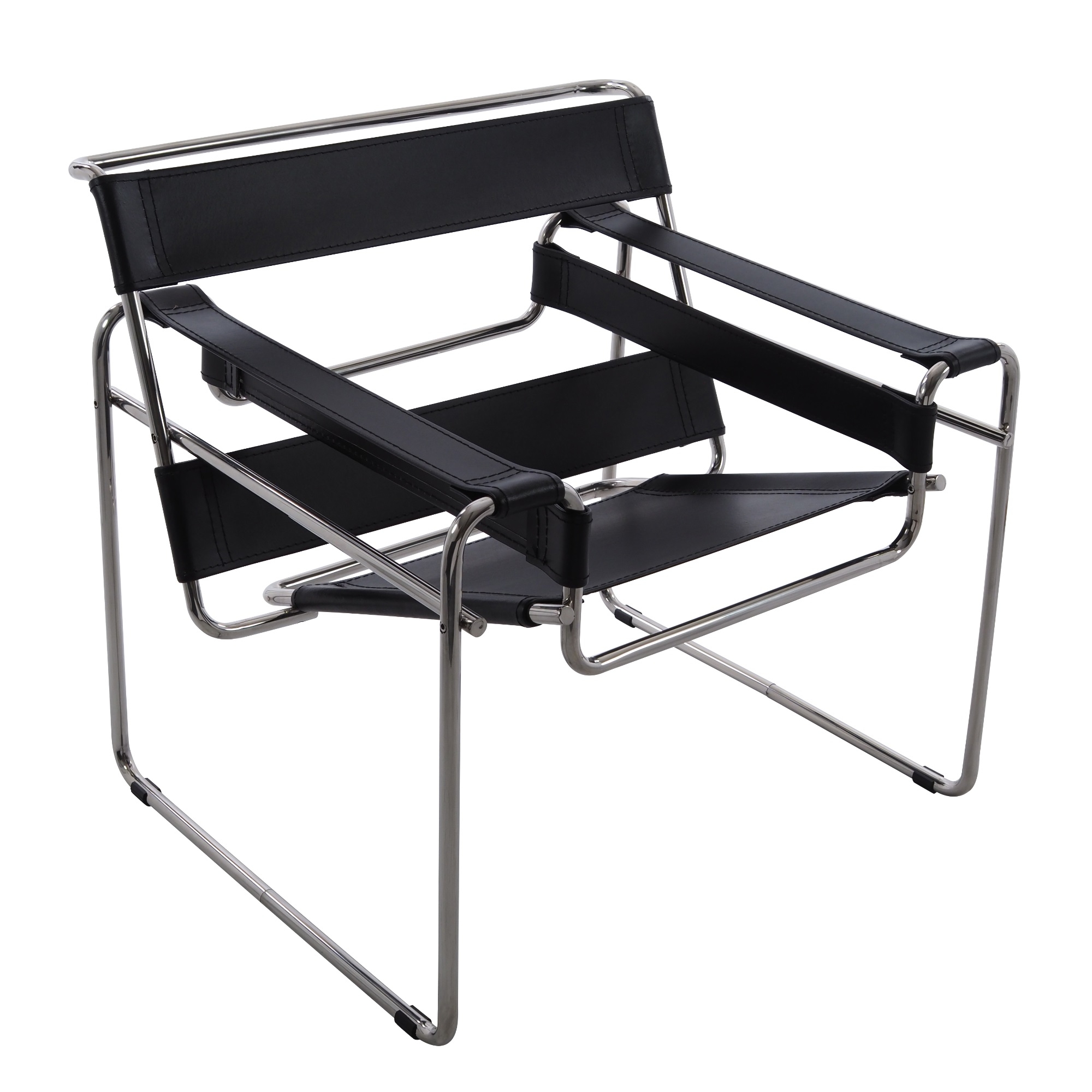
Marcel Breuer Wassily style lounge chair
Chaise Lattenstuhl(chaise à lattes) ln its apparent simplicity, this chair combines many issues of its time: the logic of industrial manufacturing, functionalism, and a stripped-back aesthetic. First a student, then a teacher at the Dessau Bauhaus in Germany, Marcel Breuer advocated a global vision of architecture and design. ln 1922, while.

Silla Wassily Marcel Breuer style Cuero Premium
The architect and designer Marcel Breuer was one the 20th century's most influential and innovative adherents of modernism.A member of the Bauhaus faculty, Breuer — like such colleagues as the architects Walter Gropius and Ludwig Mies van der Rohe, and the artists and art theoreticians László Moholy-Nagy and Josef Albers — left Europe in the 1930s to champion the new design philosophy.
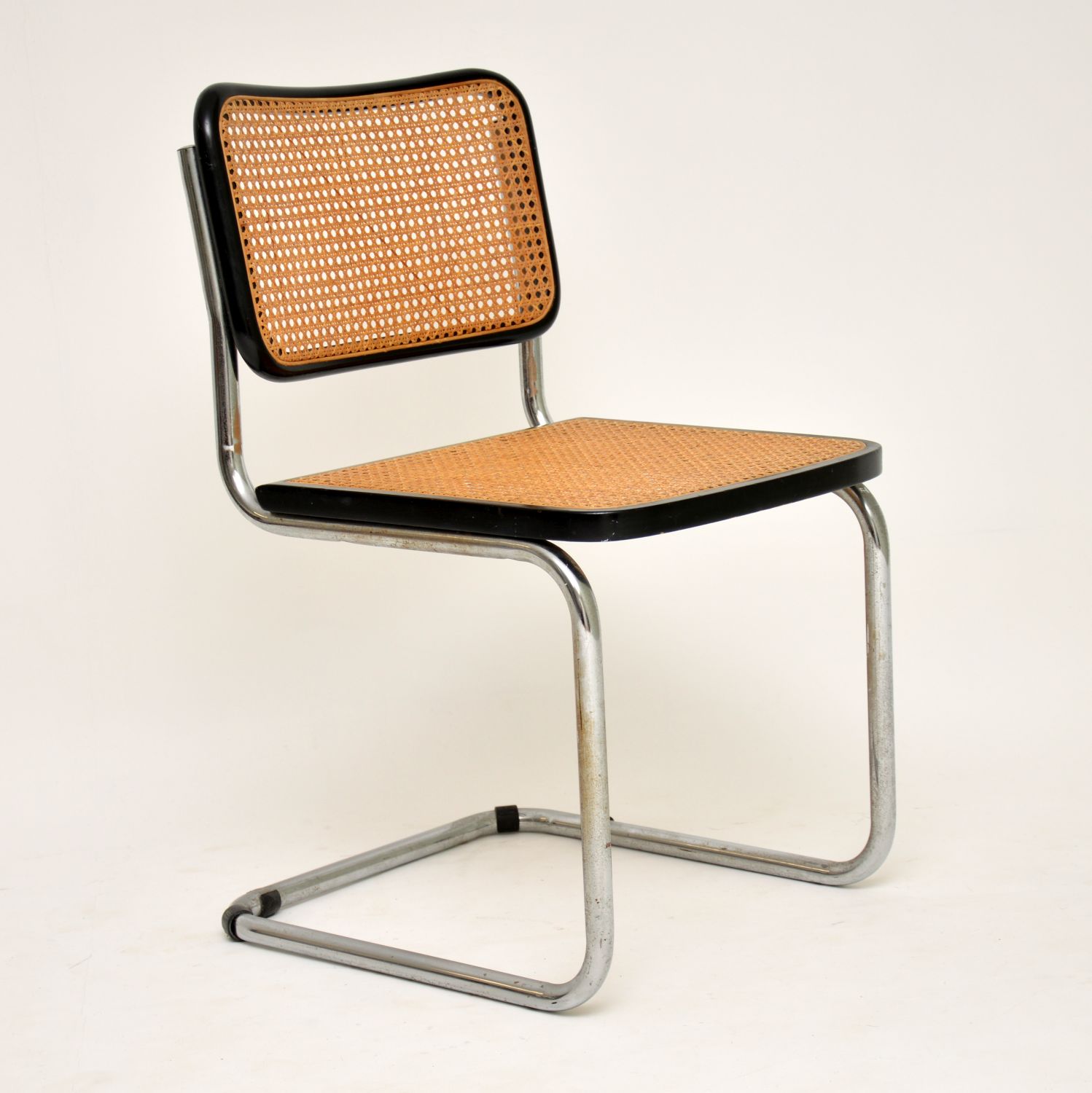
1980's Vintage Cesca Chair by Marcel Breuer Retrospective Interiors Retro Furniture, Vintage
The Wassily Chair - The Groundbreaking Story Behind Marcel Breuer's MasterpieceDive into the captivating history of the Wassily Chair, Marcel Breuer's ground.

La Tapicera Sillas Cesca de Marcel Breuer tapizadas
Wassily chair by Marcel Breuer Marcel Breuer Faltsessel, Chair D4 (1927), from the Bauhaus Dessau Wassily chairs in the Bauhaus of Dessau. The Wassily Chair, also known as the Model B3 chair, was designed by Marcel Breuer in 1925-1926 while he was the head of the cabinet-making workshop at the Bauhaus, in Dessau, Germany.. Despite popular belief, the chair was not designed specifically for.